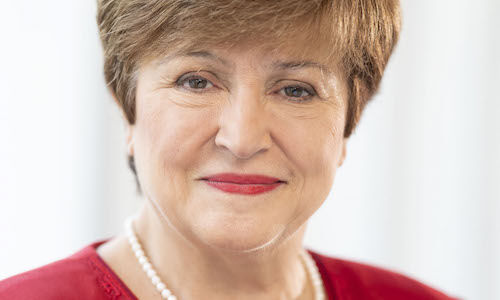IMF: «2020 Recession at Least as Bad as GFC»
International Monetary Fund managing director Kristalina Georgieva made a public statement after a coronavirus emergency call with G20 finance ministers and central bank governors.
A major theme during the emergency call was the acknowledgment that the world is currently facing «a moment of solidarity», according to Georgieva. In addition, the call focused on three points in particular: the 2020 outlook; emerging market risk; and IMF readiness to provide support.
«The human costs of the coronavirus pandemic are already immeasurable and all countries need to work together to protect people and limit the economic damage,» she said in an IMF statement.
2020 Outlook: At Least Another GFC
During the call, Georgieva underlined that 2020 would face a recession «at least as bad as during the global financial crisis or worse» though a 2021 recovery is expected.
Whilst Georgieva praised the actions done to boost health systems, protect affected workers and firms, and ease monetary policy, she noted more will be required especially on the fiscal front.
EM Risk: Record Outflow
Georgieva also highlighted the risk faced by emerging markets and low-income countries that are lesser equipped to deal with the crisis. Capital outflows – an all-time record of $83 billion since the start of the crisis – and a slowdown in domestic activities is set to intensify risks.
She added that the IMF was particularly concerned about low-income countries in debt distress and is currently working closely with the World Bank to tackle the issue.
IMF Support: «We Stand Ready»
According to Georgieva, the IMF is concentrating bilateral and multilateral surveillance on this crisis and stepping up emerging finance with nearly 80 countries already requesting help.
«We are replenishing the Catastrophe Containment and Relief Trust to help the poorest countries. We welcome the pledges already made and call on others to join,» she added. «We stand ready to deploy all our US$1 trillion lending capacity.»
The IMF is currently exploring and suggesting other options including requests for special drawing rights allocation for low and middle-income countries, akin to those during the global crisis and the establishment of more bilateral swap lines with emerging market countries.



























